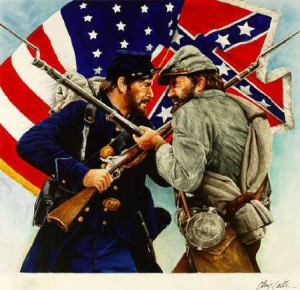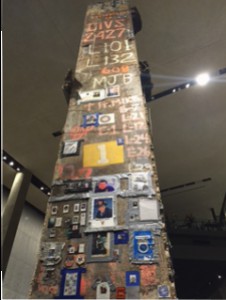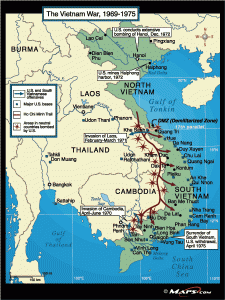 The Civil War (1861-1865)
The Civil War (1861-1865)
Intro: Overview, Attendance, Agenda, Introduce Essential Question, Objectives, Standards
Enduring Understanding: The struggle for individual rights and equality often shapes a societyʻs politics.
Essential Questions: Can the nationʻs union of states be broken? Should war be conducted against both military and civilian populations?
Objectives:
—the advantages and disadvantages the North and the South had at the beginning of the war.
—why President Lincoln decided to issue the Emancipation Proclamation and how it changed the meaning of the war.
—the experiences on the home front in the Union and the Confederacy.
—the significance of the Siege of Vicksburg and the Battle of Gettysburg as turning points in the war.
—the conditions, both military and civilian, in the Confederacy at the warʻs end.
Standards:
…Culture (#3, 6)
…Time, Continuity and Change (#1, 2, 4)
—People, Places and Environments (#8)
…Individuals, Groups, & Institutions(#3, 5)
The Civil War: Advantages & Disadvantages via Google Classroom
—Compare and Contrast North and South during the Civil War with regards to Military, Economy, Population
The Civil War Writing Prompt
—Civil War Writing Prompt via Google Classroom
Homework: Writing Prompt due Sunday into Google Classroom by 11:59 pm!

 Global Challenges: Terrorism and Remembering 9/11/01
Global Challenges: Terrorism and Remembering 9/11/01